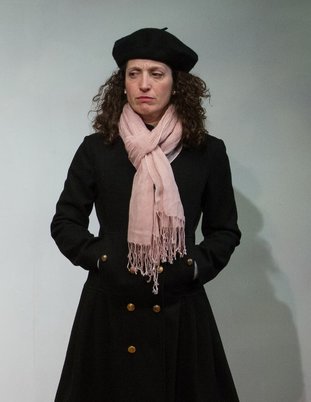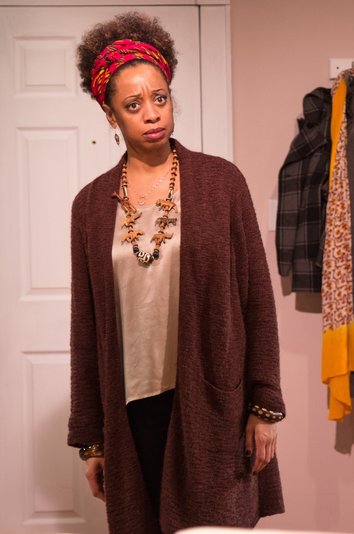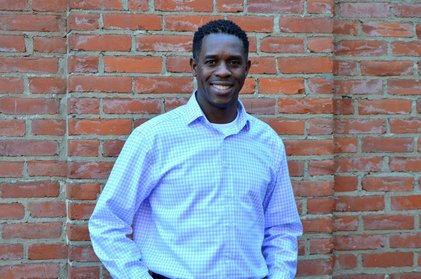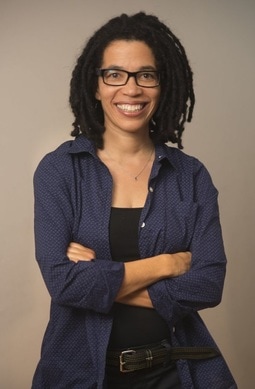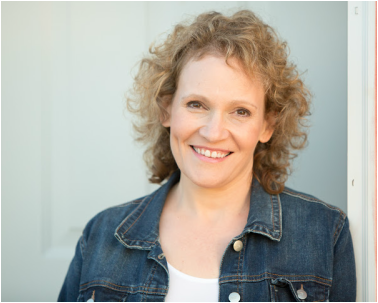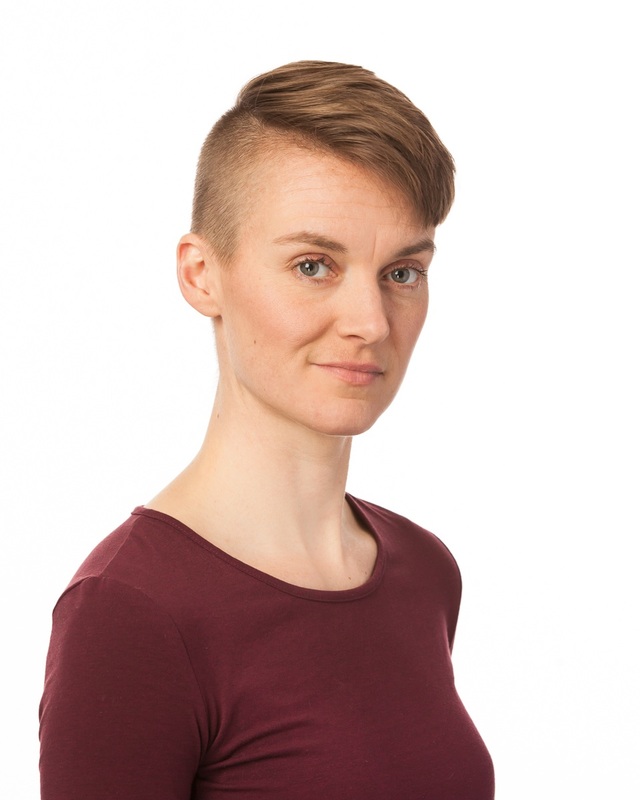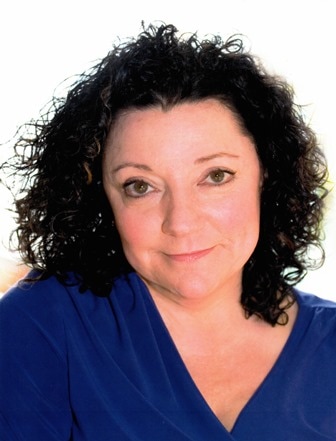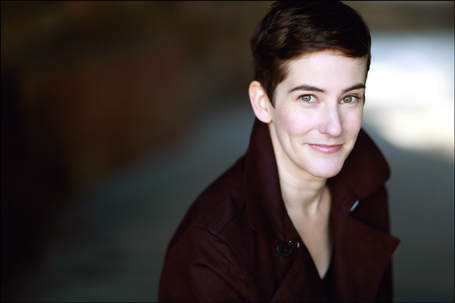 Moira Stone, actress playing "Adult Alison" in Fun Home.
Moira Stone, actress playing "Adult Alison" in Fun Home. What drew you to Fun Home in the first place?
Cristina: I think, like many Vermonters, I had been watching Fun Home’s trajectory in awe since it first premiered at the Public Theater. The fact that Fun Home was based on a fellow Vermonter’s work immediately drew my attention, especially since that work happened to be Alison Bechdel’s popular graphic novel of the same name. From the outset, Fun Home came across as the “little show that could,” so when it became a big hit that transferred to Broadway and then won the Tony for Best New Musical, it was such a wonderful surprise. It definitely got me fantasizing about doing the show here someday. I just had no idea how quickly someday would come.
Robin: For me, deliberation is part of taking on any new directing project. Am I excited by the work? Is it a fit? Does it pose fresh challenges? Then out of the blue this spring, Cristina called to ask if I would direct Fun Home for Vermont Stage. And there was no deliberation. I had read, in awe, Alison Bechdel’s graphic novel the year it was released. I revered the book in all its artistry, deceptive simplicity, courageous exploration of a life, and themes to which I relate in the universal and particular. Now, as I take apart the play to reassemble it for production, my sense of excitement is only reinforced by the masterful work of Lisa Kron (book and lyrics) and Jeanine Tsori (music). What an honor.
Rights for Fun Home are competitive. Do you have any insight as to why this particular production was given the green light?
Cristina: I still don’t know for sure why Vermont Stage was given the green light, especially since the National Tour is still running, but I have my assumptions. The licensing company asked if we still wanted to do the show and I immediately said yes. They said they would check in with the tour to see if they were comfortable letting us do it. I asked if the National Tour planning on coming here and they said it wasn’t likely, so the only way that Vermonters were going to get to see Fun Home was if Vermont Stage decided to produce it. Vermont Stage is also the only year-round, professional producing company in the area so we often get first choice on popular new titles.
What does it mean to bring Fun Home to creator Alison Bechdel’s home state? Is Bechdel involved at all?
Cristina: It is an incredible honor to be the first theater to bring Fun Home “home.” This show has felt special ever since I started telling people that we were doing it. The reactions I have gotten from our audiences have been inspiring. This show means a lot to people here because of the Vermont ties and because of the subject matter. Bechdel knows we are doing the show and plans to help in whatever way she can to make the show a success. We have a beautiful, incredibly talented, cast. I am certain our production will do justice to the author’s intent. I can’t wait for her to see it.
Is producing Fun Home different from producing a typical Vermont Stage play? How?
Cristina: Absolutely. The logistics of producing a musical is the major challenge. This is the biggest show we have ever produced. We have to hire an orchestra and a music director and many other additional staff members just to get the show off the ground. However, with that challenge comes so much more room for collaboration, which is exciting and rewarding. Certainly the pride we will feel once we see the audiences’ reactions to the show will have been worth all of the extra time, resources, and energy.
What’s the casting process like?
Robin: The usual prerequisites for casting a musical include seeking actors who can impressively fulfill the acting-singing-movement demands of each role, believably play the characters and relationships, while supporting a directorial vision. In addition to this, Fun Home provides several unique challenges for casting its nine roles: finding one actor who can deftly play four distinct characters; five actors who can believably play a family with biologically related children ages six, eleven, and nine; and two additional actors who appear to be grown up versions of the nine-year-old at ages 18 and 43.
Due to the play’s size, did Vermont Stage consider moving to the Flynn MainStage?
Cristina: We did talk and think about this a lot before deciding to do the show in FlynnSpace. Ultimately, we felt that FlynnSpace is a better fit for the show. Fun Home was produced in the round on Broadway at Circle in the Square, which is a relatively intimate theater. The show benefits from that intimacy, given that it is such a personal story set primarily in Bechdel’s childhood home. We also pride ourselves on the impact that our plays have on our audiences, due, in part, by the immediacy and intimacy that producing plays in a small venue can breed. We didn’t want Fun Home’s potency to get diluted by the vastness of the MainStage.
What are some of the greatest challenges in adapting a show as large as Fun Home to a small–scale production? How are you meeting them?
Robin: It’s true that this is a large undertaking for Vermont Stage with its cast of nine, orchestra of six, and 26 scenes in roughly 15 locations, to be produced in the snug black box of FlynnSpace. Yet, I can’t imagine better challenges or a play that more pointedly invites and helps in meeting them. Because Fun Home unfolds from the perspective of an artist’s memory at work, realizing the play begs for innovative, fluid, answers to its puzzles. Given the “director’s vision” has (as of this interview) yet to be interpreted and rendered by the design team, I’ll pause at that.
Why do you think Fun Home, which includes some pretty dark subjects, resonates with audiences?
Robin: Where to begin? The truth of it. The unabashed story telling style. Its musical mix of frolic and frankness. Its bold look at death and ultimate celebration of life. The refreshing ways it gives us time to reflect and deepen our understanding of what it means to be human, to love, be in a relationship, have family, make choices, succumb to fear, and be courageous. As Bechdel’s graphic novel is a vivid illustration of this adage by James Joyce--“In the particular is contained the universal”—so too is the musical version, particular and oh so universal. Because of this, Fun Home skillfully, playfully, wakes us up and resonates.
Reprinted from Flynn Center's blog.

